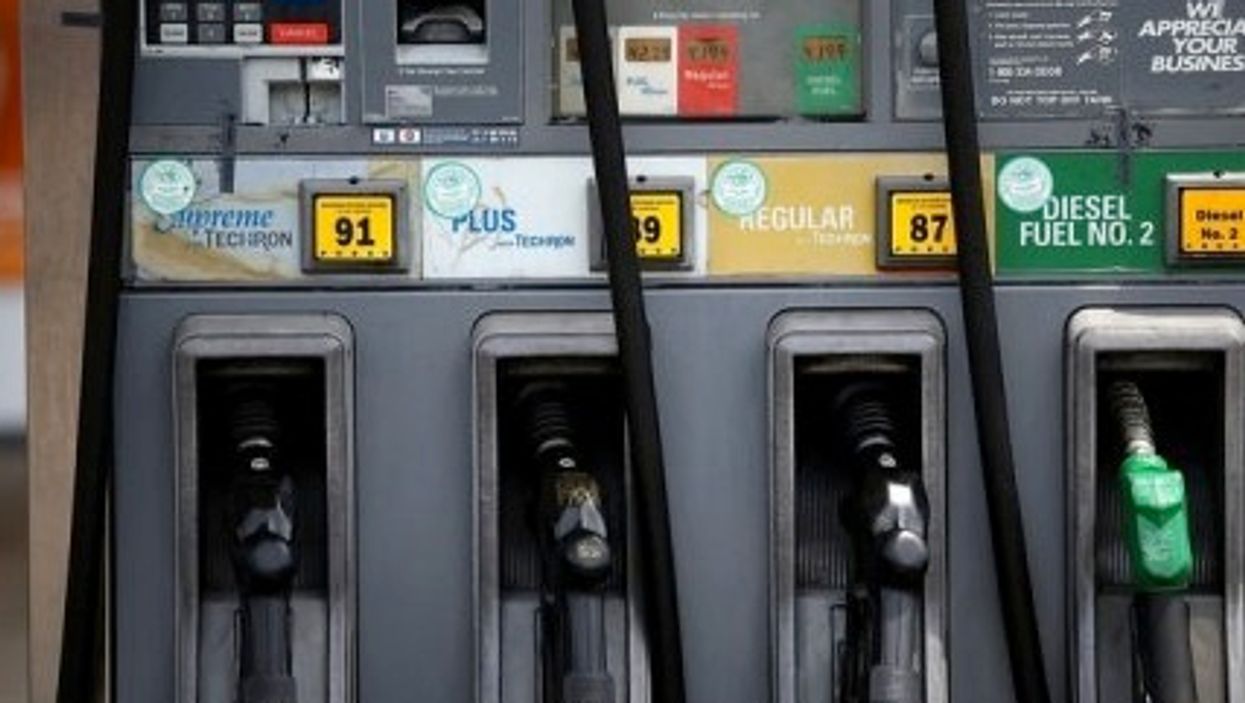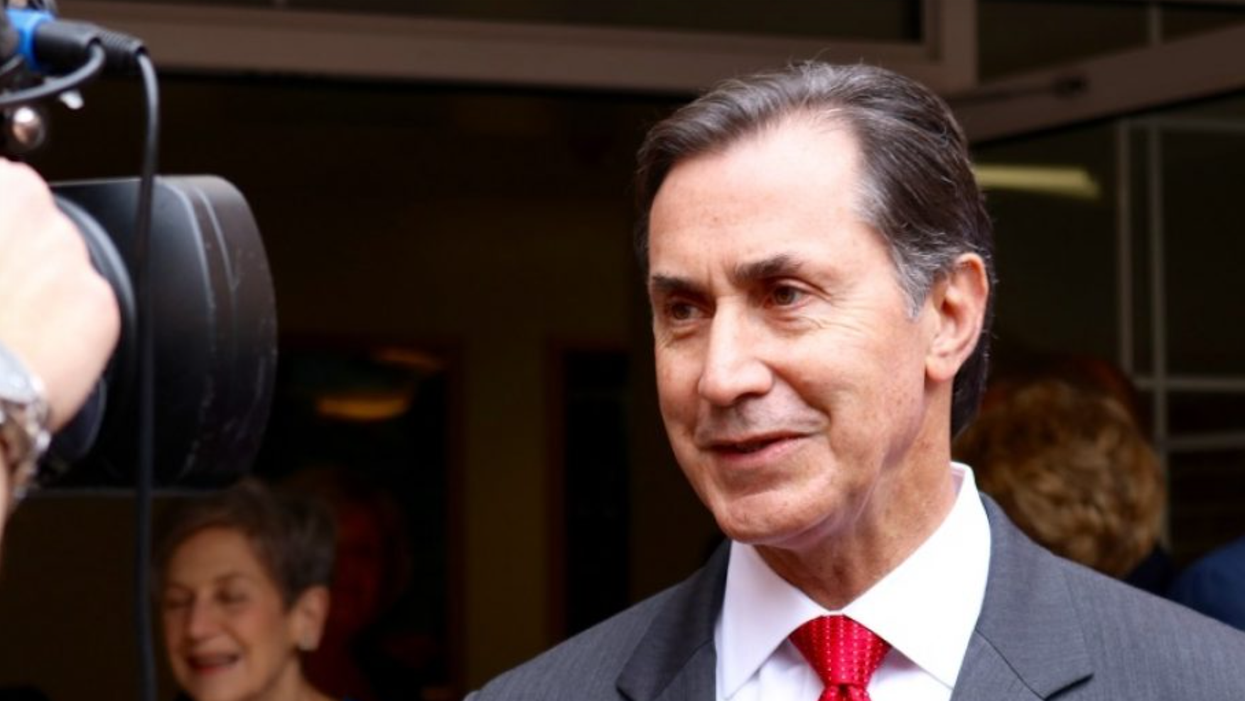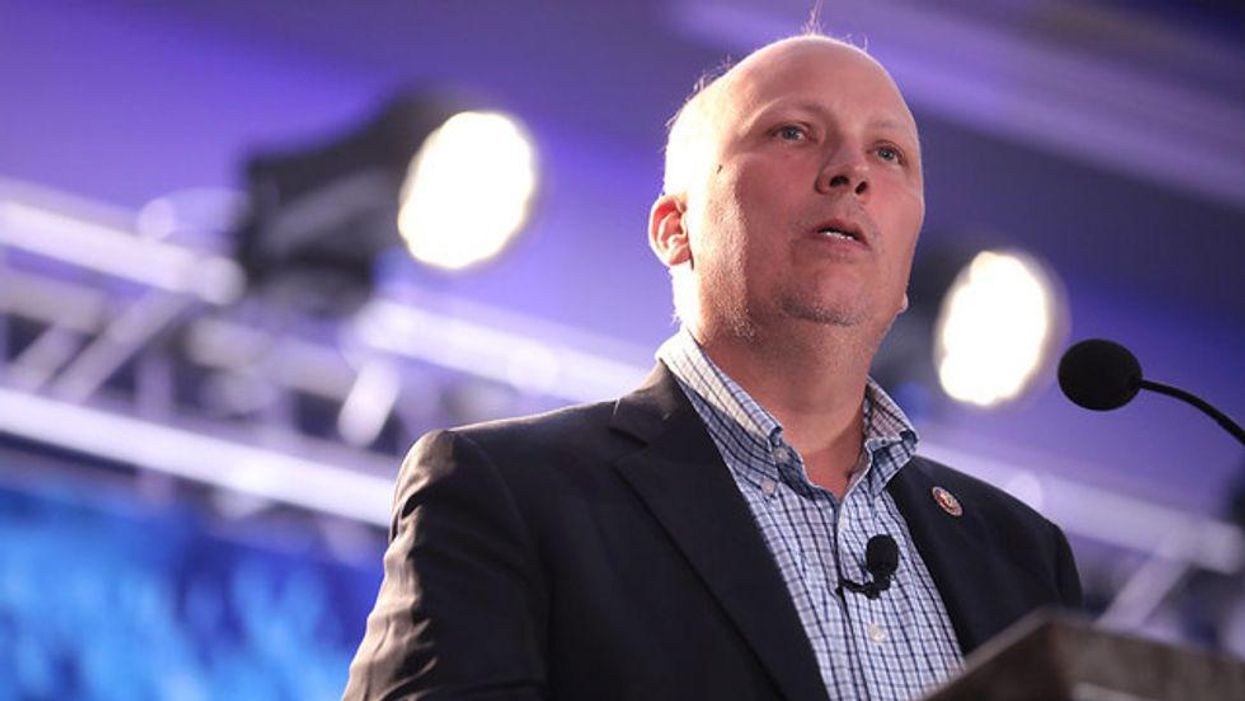Wrong Turn: A Gas Tax Holiday Would Frustrate Biden's Critical Goals
In politics, there are proposals that are so sensible they are bound to become law. There are ideas so awful that they are quickly discarded and forgotten. Then there are the ones that have no chance of being enacted but keep coming back.
They are the zombies of public policy: not exactly alive, but never quite dead. A prime example is the gas tax holiday. Several Democratic senators have signed on to a bill to suspend the 18.4-cents-per gallon federal levy to reduce the cost of fuel and combat inflation.
Sen. Mark Kelly (D-AZ), argues that lifting the gas tax would be "something that directly helps people right now when they need it." Senate Majority Leader Chuck Schumer says, "It's one of the many things that we're looking at in terms of reducing costs." The White House declines to rule it out.
No one likes paying taxes or feeling gouged at the pump, which explains the appeal to politicians. Democratic pollster Celinda Lake regards it as "a great populist issue because people are always mad at gas prices and gas taxes."
Democrats would do well to recall the example of Barack Obama. During his 2008 presidential campaign, he had to contend with two rivals, Democrat Hillary Clinton and Republican John McCain, who proposed the same thing. Obama had the backbone to deride it as "a gimmick that would save you (the cost of) half a tank of gas over the course of the entire summer so that everyone in Washington can pat themselves on the back and say they did something." He found an unlikely ally in George W. Bush.
It's a lousy idea, for reasons that should be most obvious to Democrats. They united to help pass Joe Biden's $1 trillion infrastructure bill, which will be financed partly with revenue from the federal gas tax. As the bipartisan Committee for a Responsible Federal Budget notes, a gas tax holiday would deprive the Highway Trust Fund, which pays for roads, bridges and mass transit, of $20 billion a year.
If that weren't bad enough, the trust fund has been spending more than it takes in, putting it on schedule to go broke by 2027. Suspending the gas tax would move that date up by a year.
It would also contradict another core Democratic goal: reducing our reliance on fossil fuels. High gas prices, as it happens, are a good way to encourage conservation, enhance the appeal of electric vehicles and curb greenhouse gas emissions. Larry Summers, who was director of Obama's National Economic Council, said last summer, "There's no more important price to increase in the American economy than the price of carbon-based fuels.
"Summers was rebuking Biden for urging oil-producing nations to boost output to lower prices — even though the more oil they produce and the world consumes, the faster the planet will heat up. "On the surface, it seems like an irony," Biden acknowledged. Actually, a better term would be "self-contradiction."
That wasn't Biden's only divergence from sensible methods of combating climate change. In November, he released 50 million barrels of oil from the Strategic Petroleum Reserve. The White House explanation: "Oil supply has not kept up with demand as the global economy emerges from the pandemic." Never mind the obvious way to balance demand and supply: letting prices rise.
Contrast these efforts with what Biden said in canceling the Keystone pipeline from Canada: "The United States and the world face a climate crisis. That crisis must be met with action on a scale and at a speed commensurate with the need to avoid setting the world on a dangerous, potentially catastrophic, climate trajectory."
Not that Republicans are any more honest or consistent. As prices were rising in 1996, presidential nominee Bob Dole advocated not merely suspending but abolishing the federal gasoline tax. He and GOP House Speaker Newt Gingrich said it was "the least we can do for hard-working Americans whose pocketbooks are taking a major hit." McCain said similar things in 2008.
Both parties are prone to irresponsible pandering, and each has found occasions to target the gas tax for political exploitation. But it's never energized public support, most likely because most people don't see 18.4 cents per gallon as that big a deal.
The consolation is that each time the idea emerges, cooler and smarter heads make sure it goes nowhere. It will probably go nowhere this time. But only after we've had our intelligence insulted.
Follow Steve Chapman on Twitter @SteveChapman13 or at https://www.facebook.com/stevechapman13. To find out more about Steve Chapman and read features by other Creators Syndicate writers and cartoonists, visit the Creators Syndicate website at www.creators.com.












